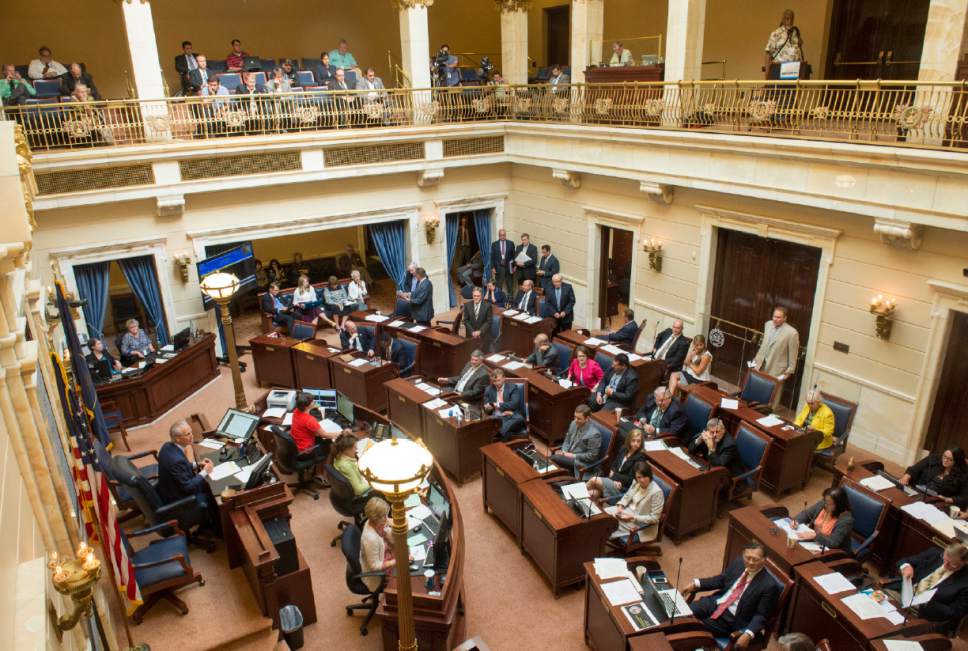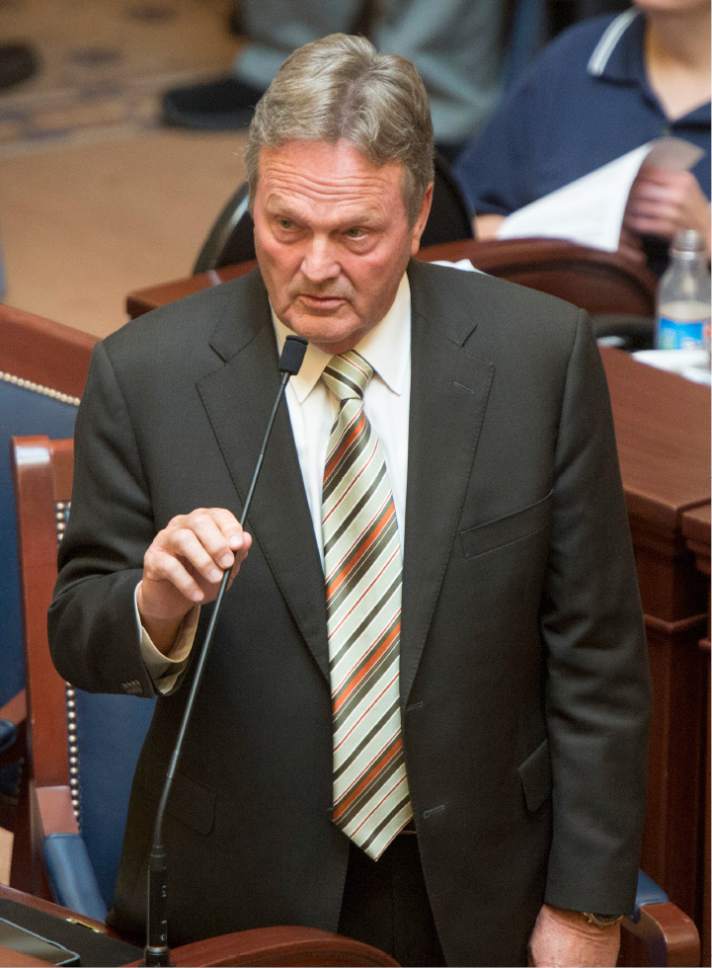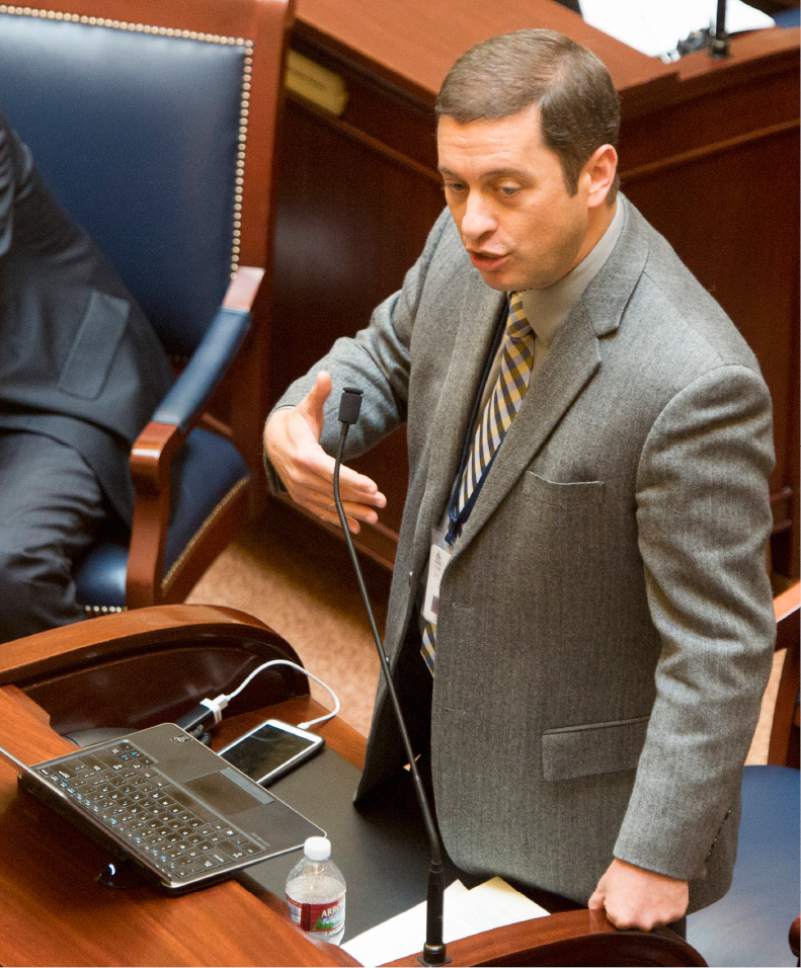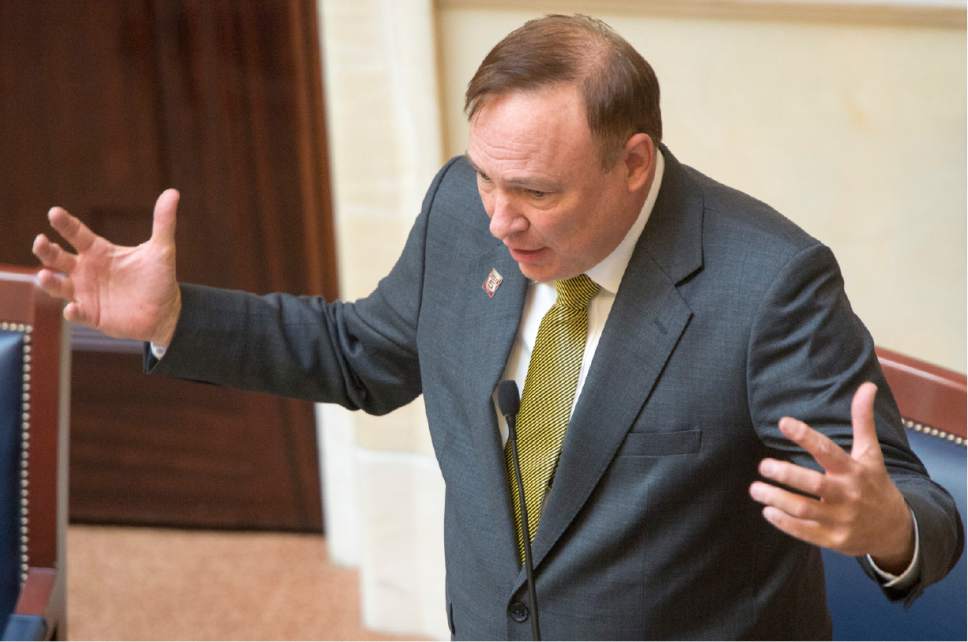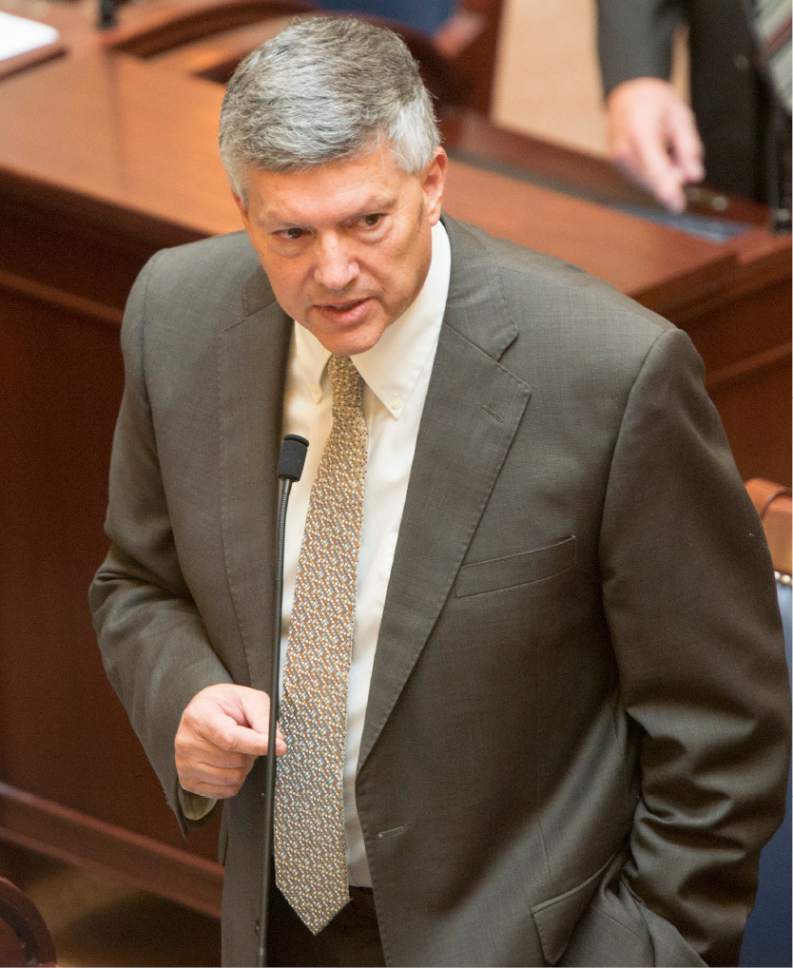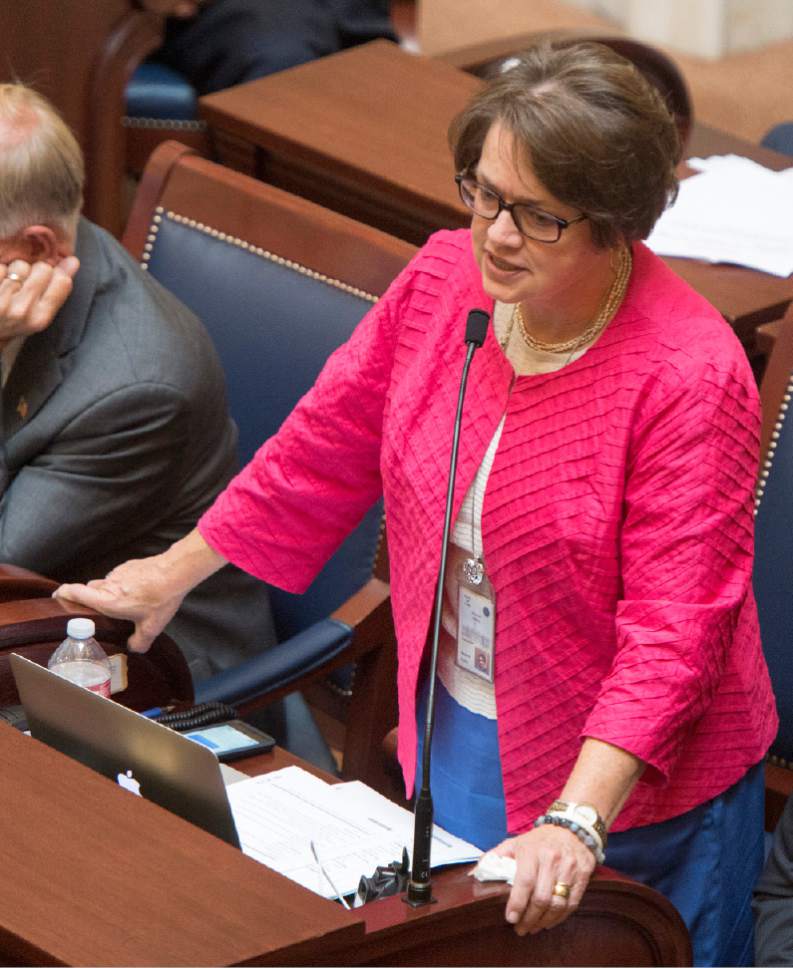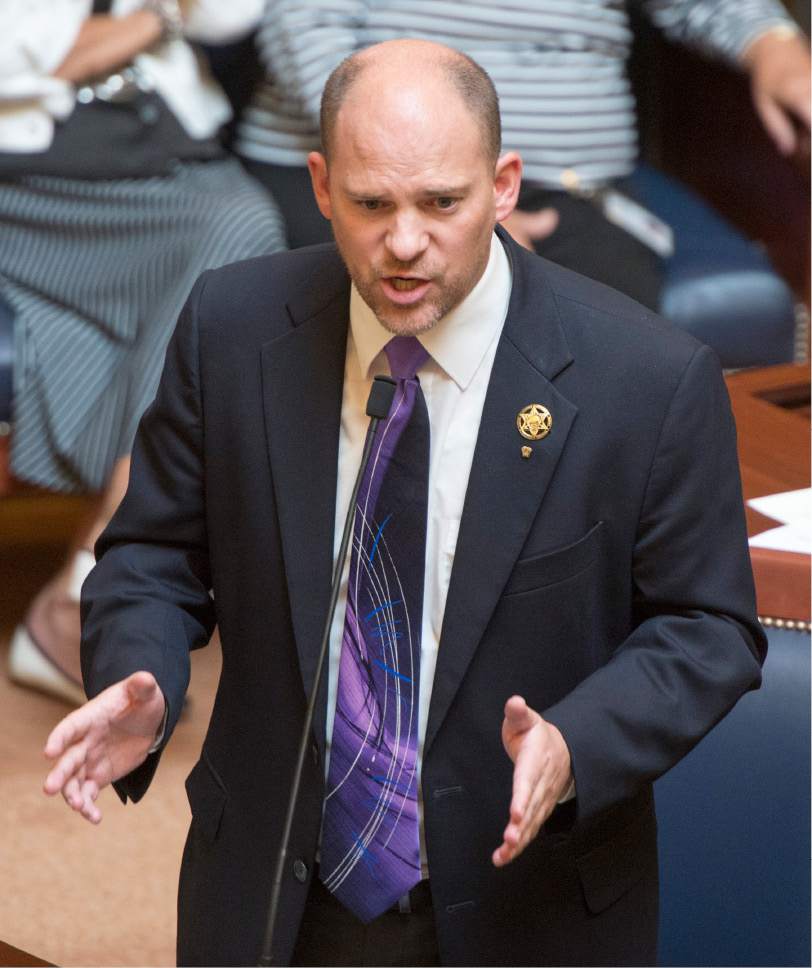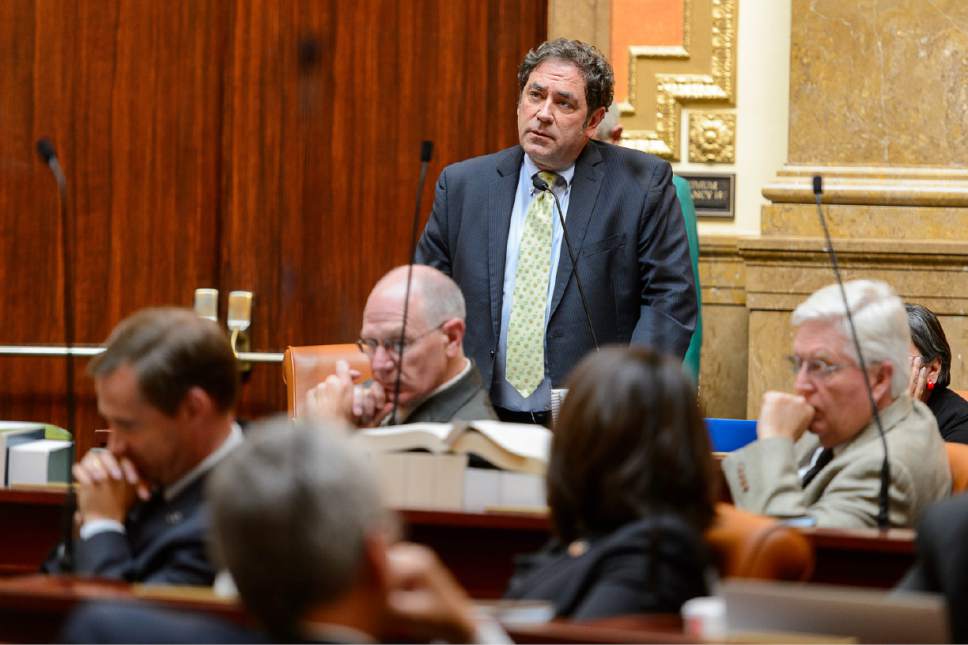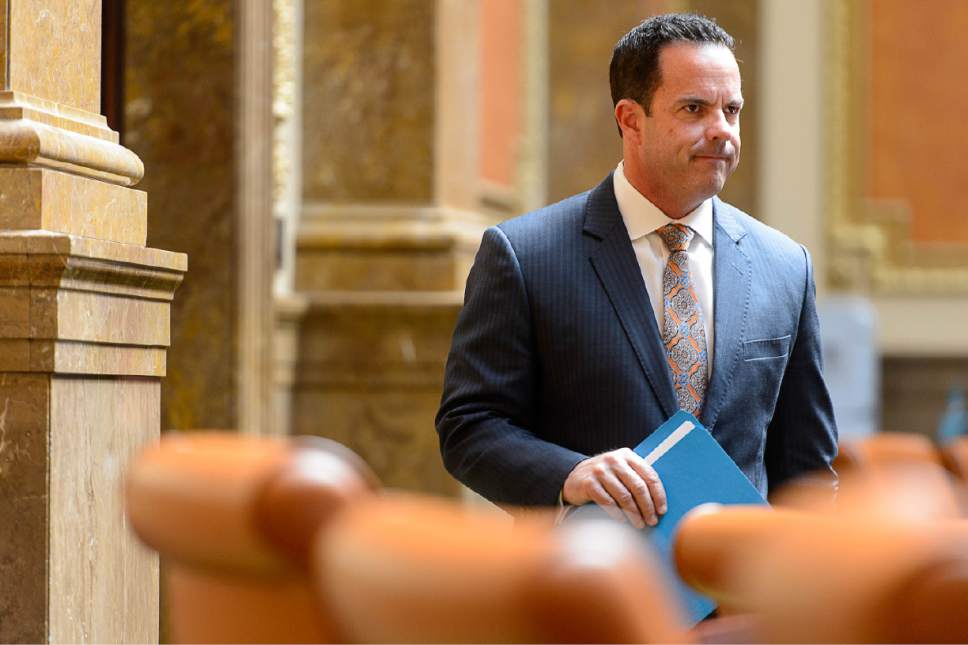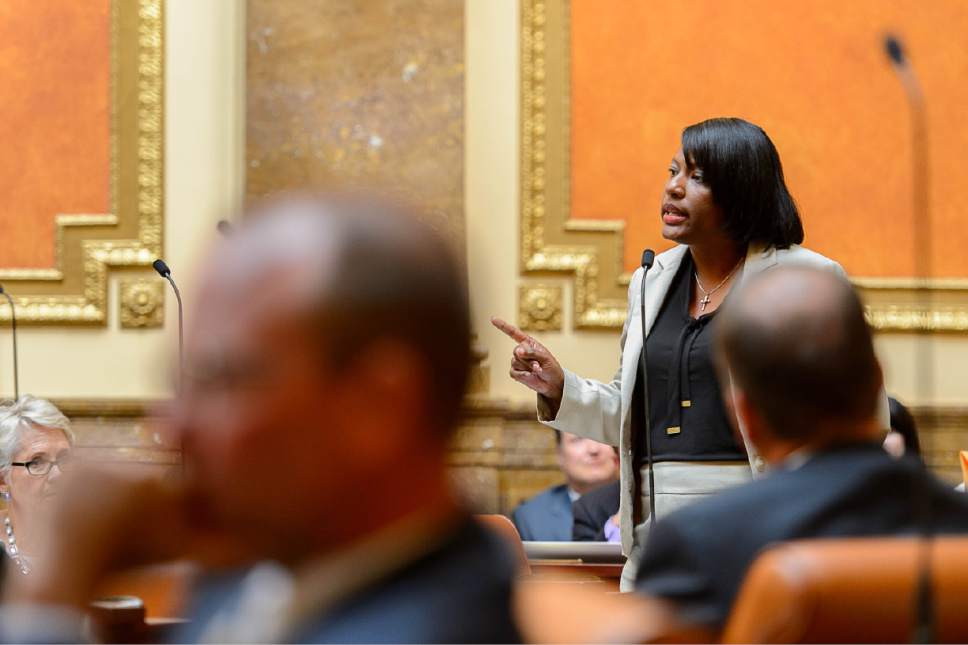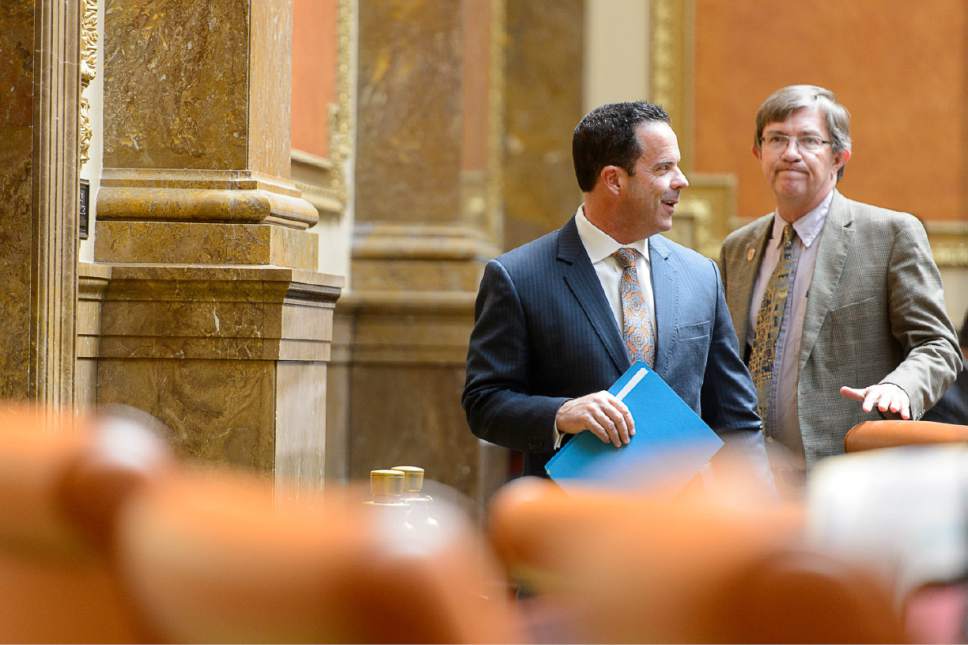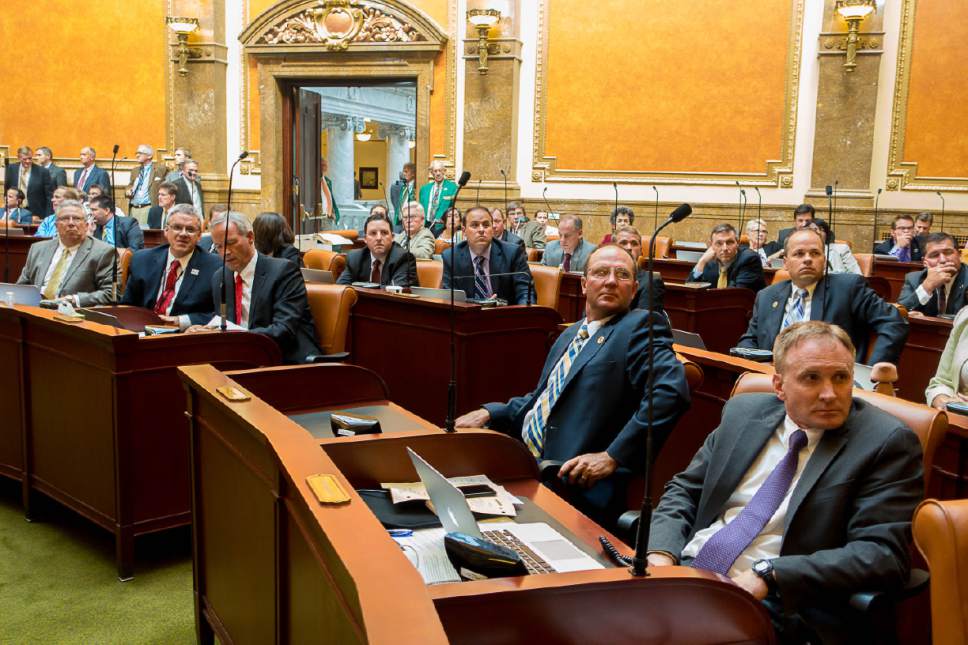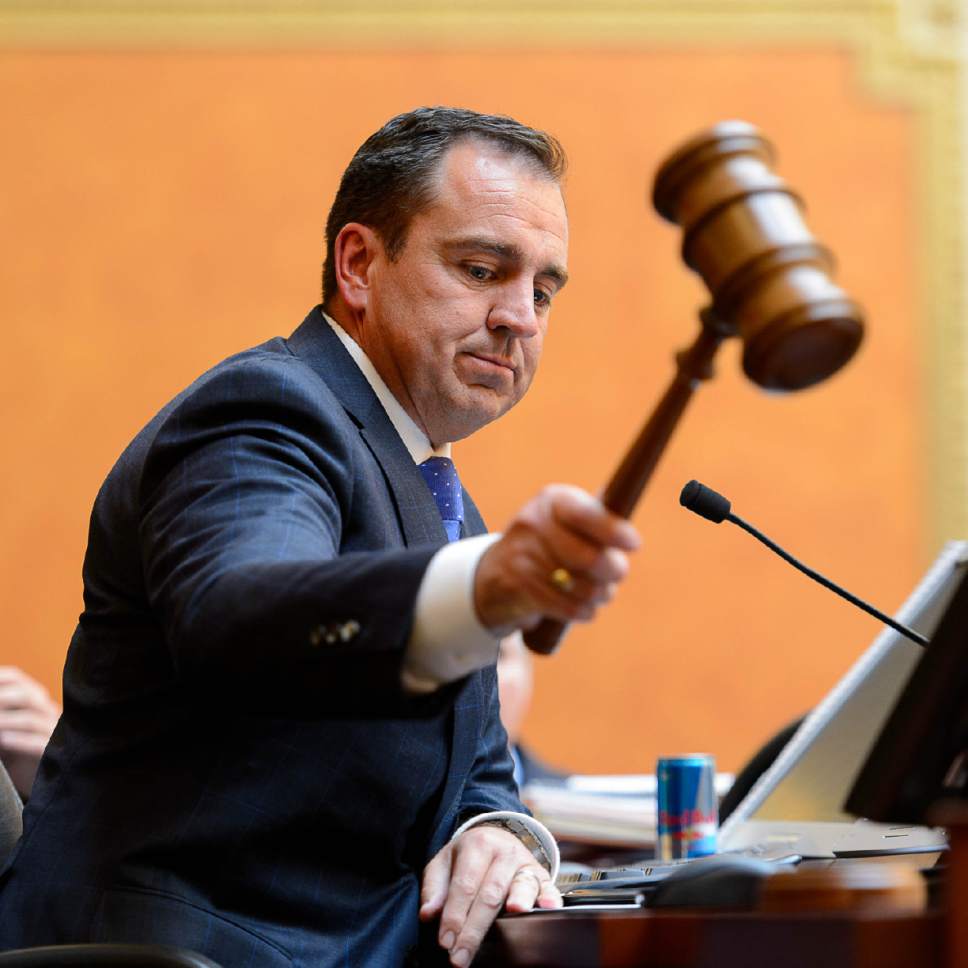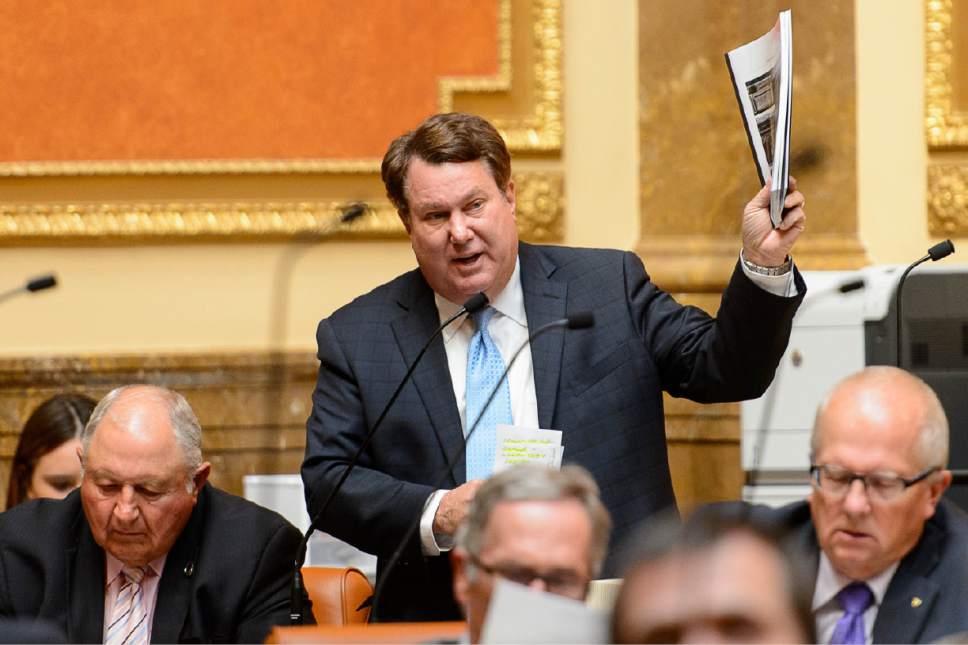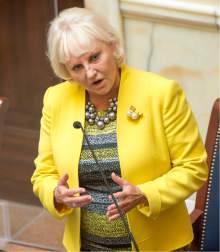This is an archived article that was published on sltrib.com in 2015, and information in the article may be outdated. It is provided only for personal research purposes and may not be reprinted.
Over the objection of Salt Lake City leaders and lawmakers, the Utah Legislature voted by a lopsided margin to relocate the state's prison to the capital city.
Now it is up to Gov. Gary Herbert to sign or reject the resolution passed in a special session Wednesday.
Herbert declined comment, but will address the issue Thursday at his regular monthly news conference.
If he signs the measure, as expected, the state will buy about 500 acres west of the Salt Lake City International Airport for roughly $30 million and start the arduous process of figuring out how to build on the soft soil and if any wetlands are in the way.
Those reviews will take months and the build out will take at least three years. The goal is to construct a modern correctional facility better suited for vocational training and drug and mental health treatment for roughly $550 million.
"You try not to get too excited, knowing that it is the beginning of the next step in the process," said Rollin Cook, executive director of the Utah Department of Corrections, who believes a new prison will help reduce the state's recidivism rate.
Rep. Sandra Hollins, D-Salt Lake City, supports the goals of criminal-justice reform, but she doesn't want to see a new correctional facility in her district.
She feels it is unfair to place it on the west side of Salt Lake City, an area that already includes multiple halfway houses. She said it is a bad symbol for this diverse area that has more lower-income residents than most House districts.
"This is about class. This is about building up other communities on the backs of our community," she said. "Salt Lake City's west-side community is once again being told, 'It is your responsibility to rehabilitate our citizens.' "
Her west-side colleague, Rep. Angela Romero, D-Salt Lake City, said: "We feel like we are disposable. We feel like we are not valued... Why do we have to carry the weight of all of Utah."
Sen. Luz Escamilla, D-Salt Lake City, said if the prison move goes through, she would push to relocate a 300-bed parole-violator center out of its current location on the city's west side.
Salt Lake City Mayor Ralph Becker called the vote "discouraging" and "frustrating," and promised to meet with the City Council shortly to determine ways to continue fighting the relocation.
"To my mind, this is a short-sighted decision," Becker said shortly after the vote.
Rep. Fred Cox, R-West Valley City, pushed the Legislature to reject the unanimous recommendation of the Prison Relocation Commission to build in Salt Lake City. He also didn't want it moved to the other potential locations in Grantsville, Eagle Mountain and Fairfield. Instead, Cox argued it is not only feasible to rebuild the prison where it is in Draper, but it would save as much as $100 million.
"I still believe the Draper site is the best location," he said.
But an overwhelming majority of lawmakers were not interested in keeping the prison near Point of the Mountain. They see that land as a prime spot for a high-tech business park.
The vote was 62 to 12 in the House and 21 to 7 in the Senate. Six of the Legislature's 17 Democrats voted for relocating the prison to the capital city. Just nine of 87 Republicans opposed the move.
The resolution calls for developing the 680 acres in Draper to achieve "optimal job growth and long-term economic benefit." The Legislature is expected to debate that development in its general session beginning in January.
Lawmakers said they favored the Salt Lake City site for the same reasons the commission recommended it, namely for its proximity to volunteers, employees, courts and hospitals. Being close to the metro area would save transportation dollars over the life of the prison. It would also likely cost less for water because Salt Lake County has an established system.
"This is the right facility, right time to build it, in the right place," said Rep. Brad Wilson, R-Kaysville, a co-chairman of the Prison Relocation Commission, who also argued that bringing utilities out to a new prison site will spur more industrial development west of the airport, which is six miles from homes.
The land in Salt Lake City is between three and five miles west of the airport and is owned by Rio Tinto, the mining conglomerate, and a California family that operates a Sonoma Valley winery.
House Minority Leader Brian King, D-Salt Lake City, said he took the concerns of Hollins and Romero seriously, but he voted for the move because he believed it was the best thing for Utah's inmates.
The House added language absolving Salt Lake City of any financial responsibility for building or maintaining the prison, a move made in reaction to concerns of city leaders. But those leaders still oppose the relocation.
Hollins, along with Becker, the mayor, have said they will seek other avenues to block a prison move, which could include an environmental lawsuit or a voter referendum.
House Speaker Greg Hughes, R-Draper, who has long advocated for moving the prison out of his city, praised the Legislature's "extraordinary effort" to ensure a public and sound process for choosing a new location.
Earlier this year, the Legislature voted to allow the city receiving the prison to raise its sales tax by a half cent, something Salt Lake City Mayor Ralph Becker has sought for years to offset the costs associated with commuters and tourists. He has more recently said he doesn't believe that a tax increase will be necessary in the short term, but he wants to retain the option.
Sen. Lyle Hillyard, R-Logan, said Wednesday that he'll bring a bill in the 2016 session to rescind Salt Lake City's ability to raise sales taxes — a move Becker sees as a slap at the city.
"There have always been people who don't seem to respect the role the capital city plays," the mayor said.


